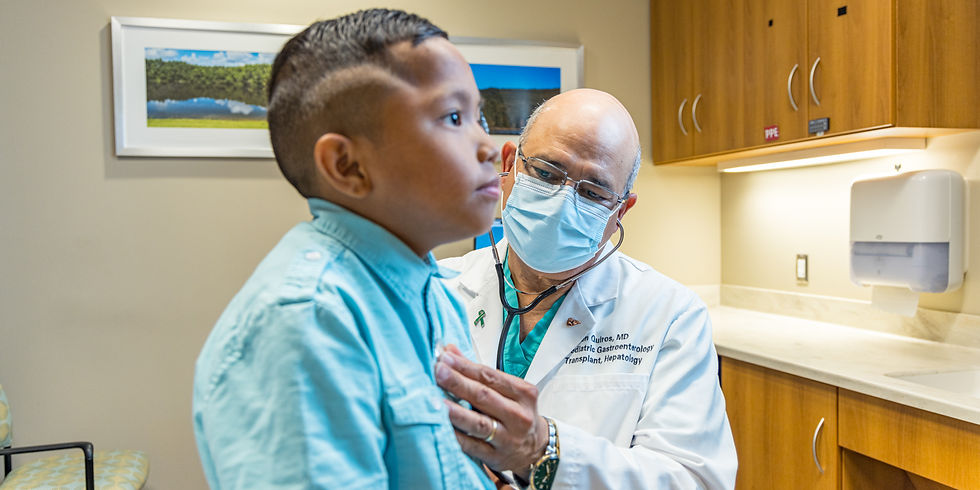Certificate Course in Pediatrics: Complete Guide
- muskansahu2822
- Jan 7, 2025
- 3 min read
Updated: Jul 17, 2025

Pediatrics is an essential branch of medicine focusing on the health and well-being of infants, children, and adolescents. For those passionate about working with young patients and making a significant impact on their lives, pursuing a certificate course in pediatrics can be a transformative step.
But what exactly does a pediatrics certificate entail? Why should you consider it? Let’s dive into the details!
Understanding Certificate Courses in Pediatrics
What Are Certificate Courses?
Certificate courses are short-term educational programs designed to provide specialized training in a particular field. They often focus on practical knowledge and are an excellent way to upskill or gain entry into a specific profession.
Key Features of a Pediatrics Certificate Course
Duration
Most certificate courses in pediatrics last between 6 months to a year, making them ideal for quick upskilling.
Eligibility Criteria
Typically, candidates with a background in nursing, medicine, or allied health sciences are eligible. Some courses may also accept candidates with general science degrees.
Curriculum Overview
The curriculum covers topics like child development, pediatric emergencies, immunization protocols, and specialized care for neonates and adolescents.
Benefits of a Certificate Course in Pediatrics
Skill Enhancement
The course equips healthcare professionals with advanced skills to handle pediatric cases efficiently.
Career Opportunities
It opens doors to various roles such as pediatric nurse, assistant pediatrician, and more.
Professional Growth
Certification demonstrates expertise, often leading to promotions and higher pay scales.
Top Institutes Offering Pediatrics Certificate Courses
National Institutions
Reputed institutes like AIIMS and PGIMER offer excellent certificate programs.
International Institutions
Renowned institutions like Harvard Medical School provide specialized pediatric courses.
Online Learning Platforms
Platforms like Coursera, edX, and Udemy host courses designed by leading universities.
How to Choose the Right Course
Accreditation
Ensure the course is accredited by a recognized medical or educational body.
Course Content
Look for a curriculum that aligns with your career goals.
Cost and Affordability
Compare fees and financial aid options before enrolling.
Skills Developed in a Pediatrics Certificate Course
Clinical Skills
From diagnosing illnesses to administering treatment, clinical skills are at the forefront.
Communication Skills
Learn how to effectively communicate with both young patients and their families.
Emergency Response
Master the skills needed to handle pediatric emergencies.
Career Opportunities After Completion
Pediatric Nurse
Play a vital role in providing direct care to children.
Pediatrician Assistant
Assist doctors in managing pediatric cases.
Specialized Pediatric Roles
Pursue roles in areas like neonatal care or pediatric oncology.
Challenges in Pursuing Pediatrics Certification
Balancing Time
Managing coursework alongside professional and personal responsibilities can be challenging.
Financial Investment
The cost of certification can be significant, but scholarships and financial aid options are often available.
Steps to Enroll in a Certificate Course
Research the Course
Explore various programs to find the best fit.
Application Process
Prepare your application, including transcripts and letters of recommendation.
Financial Aid Options
Seek scholarships, grants, or installment payment plans.
Conclusion
A certificate course in pediatrics is an excellent way to enhance your knowledge and skills in child healthcare. Whether you're starting your career or looking to specialize further, this certification can open numerous opportunities while making a real difference in young lives.
FAQs Related to Certificate Course in Pediatrics
1. What is the average duration of the course? Most courses range from 6 months to a year.
2. Is it possible to take the course online? Yes, many platforms offer flexible online options.
3. What are the career prospects after completing the course? Career paths include pediatric nursing, pediatrician assistance, and specialized roles in child care.
4. What qualifications are needed to enroll? A background in healthcare or a related field is usually required.
5. How does a certificate course differ from a degree program?
Certificate courses are shorter and more focused on practical skills, while degree programs are comprehensive and take longer to complete.







Comments